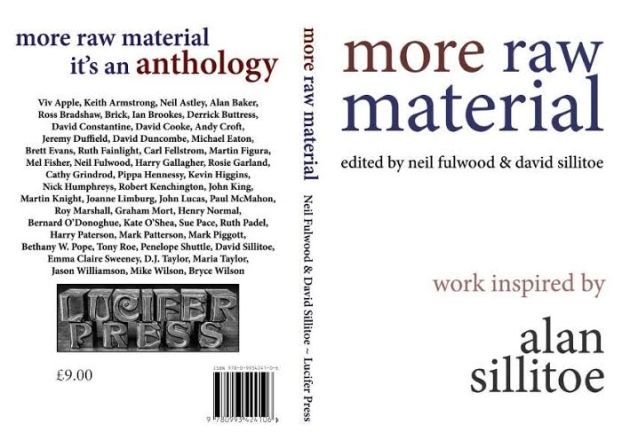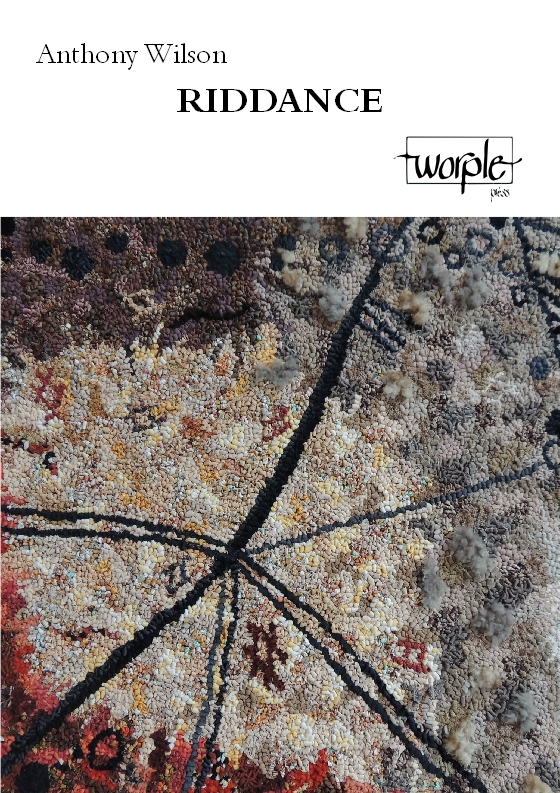Recently I've done quite a few readings. Starting in October with at 'Writers in the Bath' organised by Cora Greenhill. No fear, it's a venue called 'The Bath,' not an actual one. That reading was with Roy Marshall and Jo Bell. Then the was the Vanguard night of Poetry in Camberwell, London in November, organised by Richard Skinner. I read with Cathy Galvin, Sophie Herxheimer, Keith Hutson, Martin Malone and Rob Harper. As with the other London reading in September, I had to dash off for the train, which I wasn't happy about. I knew the other readers would be special and it was a great night. Both readings were indicative of the kind of enthused, supportive and warm audiences you have at poetry readings. At the Vanguard reading there was a lady in the audience called Evalyn Lee who was drawing some amazing pictures of all the readers. I am sharing one of me below:
 |
| Drawing by Evalyn Lee, 19/11/15 |
More recently I did a short reading as part of the launch of More Raw Material, an anthology of writing inspired by Nottingham writer Alan Sillitoe. The book is edited by Neil Fulwood and David Sillitoe.

I was really struck by Neil and David's enthusiasm on the night. Five Leaves Bookshop in Nottingham was packed. It's a really enjoyable read and the book aims to raise funds for the Alan Sillitoe Memorial Fund. Some more details here. In preparation for the night, I re-read my copy of Sillitoe's short stories in The Loneliness of the Long Distance Runner. The Nottingham literary scene is on a bit of a roll at the moment having been chosen for UNESCO's City of Literature. Well done.
Talking of the East Midlands, another very important anthology from the area is currently out: Over Land, Over Sea: Poems for those Seeking Refuge, edited by Kathy Bell, Emma Lee and Siobhan Logan.

Proceeds from sales of the book will be shared between three charities: Médecins Sans Frontières, Leicester City of Sanctuary and Nottingham Refugee Forum. The book is obviously a response to the terrible events of the last few months. So far they've sold hundreds of copies. There are 102 poems and contributions form the following poets: Alan Baker, Kathleen Bell, A.C. Clarke, Kerry Featherstone, Chrissie Gittins, Mark Goodwin, Tania Hershman, Siobhan Logan, Emma Lee, Carol Leeming, Joanne Limburg, Aoife Mannix, Roy Marshall, Hubert Moore, Thomas Orszag-Lund, Simon Perril, Sheenagh Pugh, Mahendra Solanki, Maria Taylor, Rory Waterman, Gregory Woods, and Siobhan Logan. More information and copies of the book are available here. The editors have worked incrediby hard to turn the book around in little over two months from subs to the final print.
Finally - and this is where my cold could be a problem - Mr. Commonplace aka Jonathan Taylor has a fabulous new novel out with Salt called 'Melissa.' There's already been a Leicester launch and there's one at Five Leaves Bookshop on Wednesday night from 7pm. I'm meant to be reading with Jonathan, but I'm hoping the cold will be gone by then. Here's some more info on the book here. I obviously know it quite well having lived in the same house where it was written and having seen various drafts. It's quite odd hearing Jonathan read it for public audiences when I read drafts of it at the artwork stage, but it's all good. I sense a veering into prose for this poetry blog, so I should add he also has a poem in the current Rialto too.

I've also been editing reviews for Under the Radar this month. It's actually a challenge and a reward. More on that when the next issue comes out. Also, a few poetry books to recommend. I hope to write some longer pieces soon, but books currently by the bed (a great honour) among others include: Night Letter (pamphlet) by Fiona Moore and The Whole & Rain-domed Universe by Colette Bryce. It's also good to see Daniel Sluman's second collection The Terrible out, which I was also lucky to see in its earlier drafts.
************************
Finally a few thoughts on the Aldeburgh Poetry Festival. Since writing my last entry things are not looking good for The Poetry Trust, who run the festival and the event may only take place on a reduced and much smaller scale next year.In fact, the Trust's offices are no more and up for rent. I'm glad I went to Aldeburgh for two years running before this news. I'm really sorry about it. I'm glad though that my write-up has been used among other blog posts to support and promote the festival. Judging by the stats there's been a lot of interest. It would be such an awful waste if the festival lost all it's funding. It was a genuinely special thing to attend. There is a very touching guest post by Naomi Jaffa on Anthony Wilson's blog which you can read here.
Now back to bed and some paracetamol...







